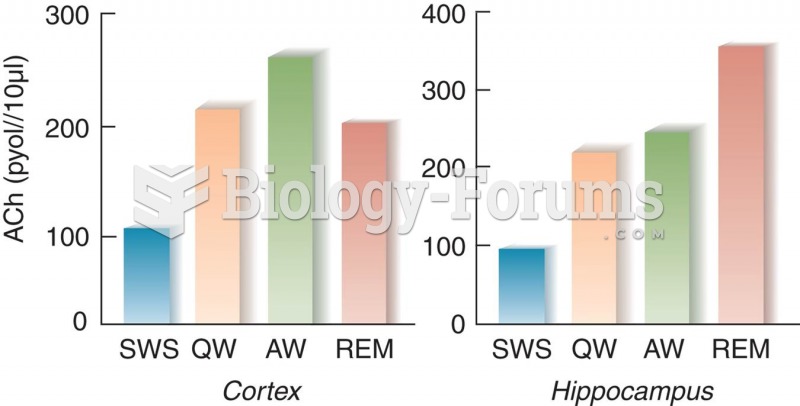|
|
|
Glaucoma is a leading cause of blindness. As of yet, there is no cure. Everyone is at risk, and there may be no warning signs. It is six to eight times more common in African Americans than in whites. The best and most effective way to detect glaucoma is to receive a dilated eye examination.
More than 30% of American adults, and about 12% of children utilize health care approaches that were developed outside of conventional medicine.
Pregnant women usually experience a heightened sense of smell beginning late in the first trimester. Some experts call this the body's way of protecting a pregnant woman from foods that are unsafe for the fetus.
In 1844, Charles Goodyear obtained the first patent for a rubber condom.
Every 10 seconds, a person in the United States goes to the emergency room complaining of head pain. About 1.2 million visits are for acute migraine attacks.
 Competition in a forest can be as intense as competition on a coral reef. However, much of the compe
Competition in a forest can be as intense as competition on a coral reef. However, much of the compe
 Hip Typically occurs as a result of a fall; with osteoporosis, hip fractures can occur as a result o
Hip Typically occurs as a result of a fall; with osteoporosis, hip fractures can occur as a result o





